Teaching
Here is my YouTube channel I started recently. I am going to constantly share some worked problems in the following channel: @william_chuang
My collections for free resources on pre-calculus: Pre-cal Resources
The following is one of my lecture notes and the topic is about quadratic function. This note is a complement that covers some natural questions that students could ask for exploring this topic as far as they could without knowing Calculus - but could discover some results of Calculus naturally. Please write me an email if you have any comments or ideas for how to make these questions and responses better since I develop this collection on my own.
I observed that the following data largely represents the dynamics of the class because I was instructing and helping the same course in different sections that were kept in the same progress.
The more the primary instructor of a particular class trusted me, the more likely it was that the students would also trust me, increasing the likelihood that I would be called for assistance which could also largely help me to know how much they already understood and how much they didn't and how to craft my presentation so that all students could get it instantly.
This brings up the second key factor I noted, which is whether or not a class has a welcoming atmosphere. To assess this, see if everyone in the class had the chance to interact with one another and know each other's names in a friendly environment. This could greatly encourage students to ask questions and be motivated to complete the extra practice.
The following is the statistics of responses from the course (MATH-112-033-46428 College Algebra) that I assisted (as a graduate teaching assistant) to teach at the University of Arizona:
The following is the statistics of my teaching effectiveness responses I got while I was the fourth hour instructor for the courses: MATH 226 [38] Calculus I, MATH 227 [06] Calculus II, and MATH 227 [36] Calculus II at the San Francisco State University. 1 is the best (the most positive) score and 5 is the worst (the most negative) in this survey. These were the results I improved from my first time teaching in 2019.

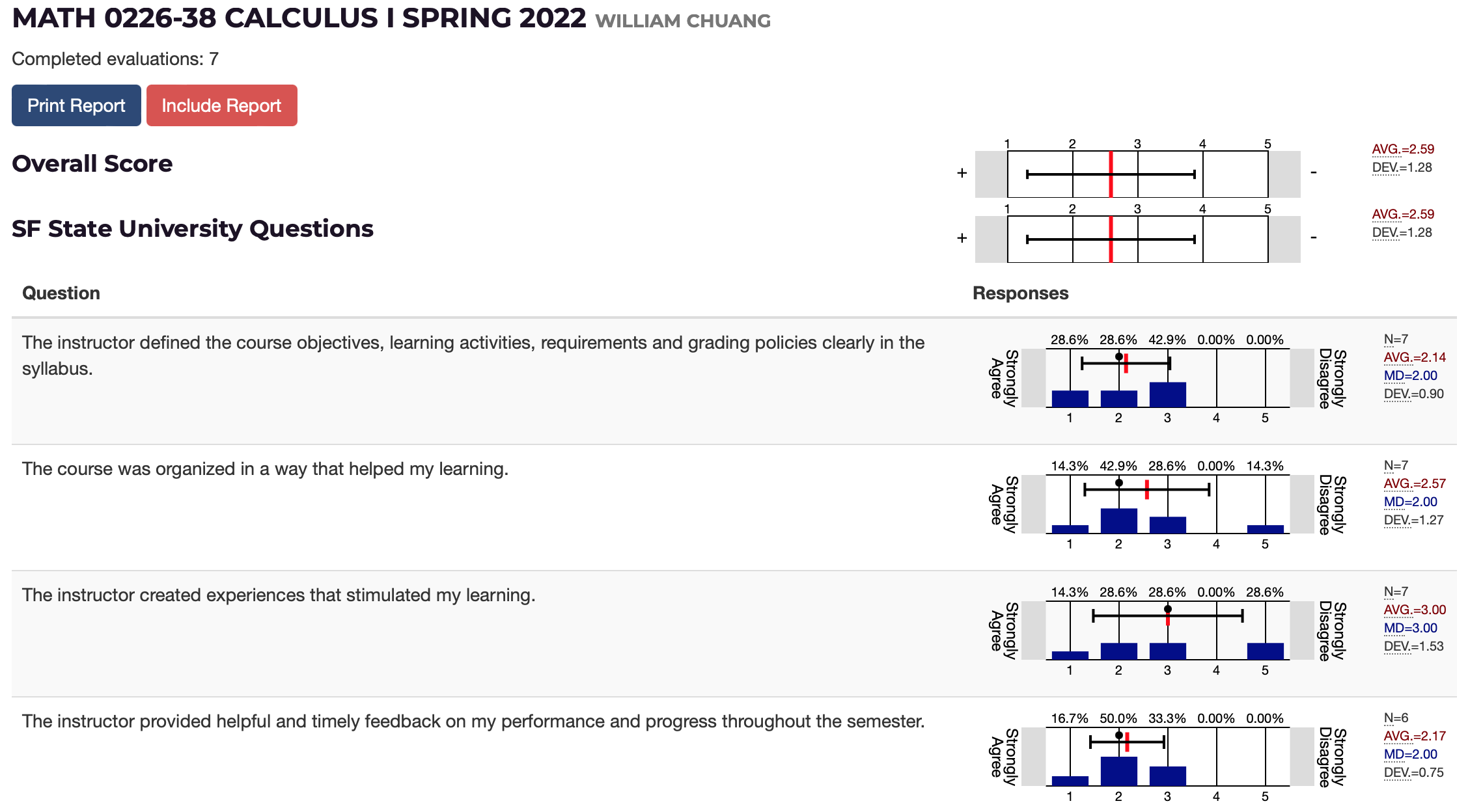
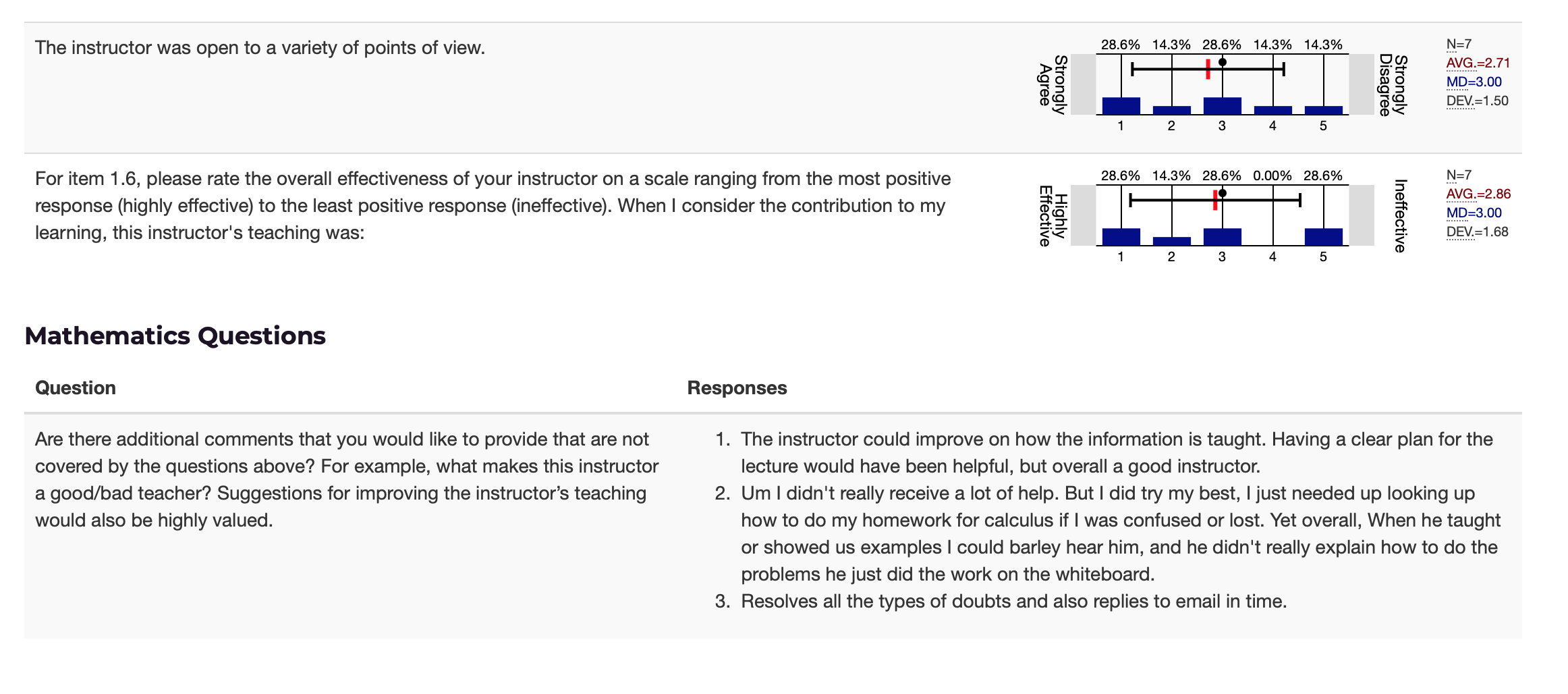
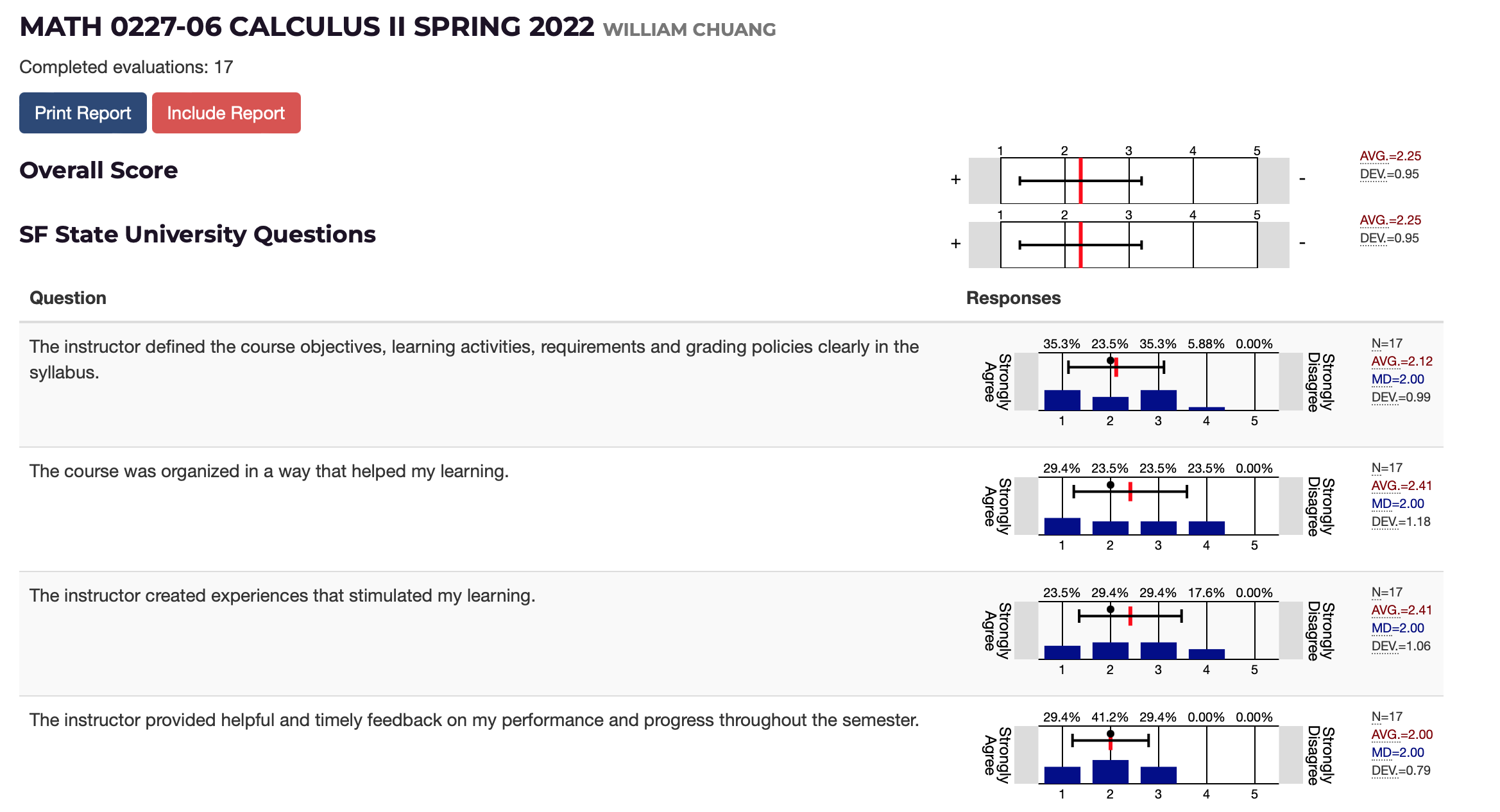
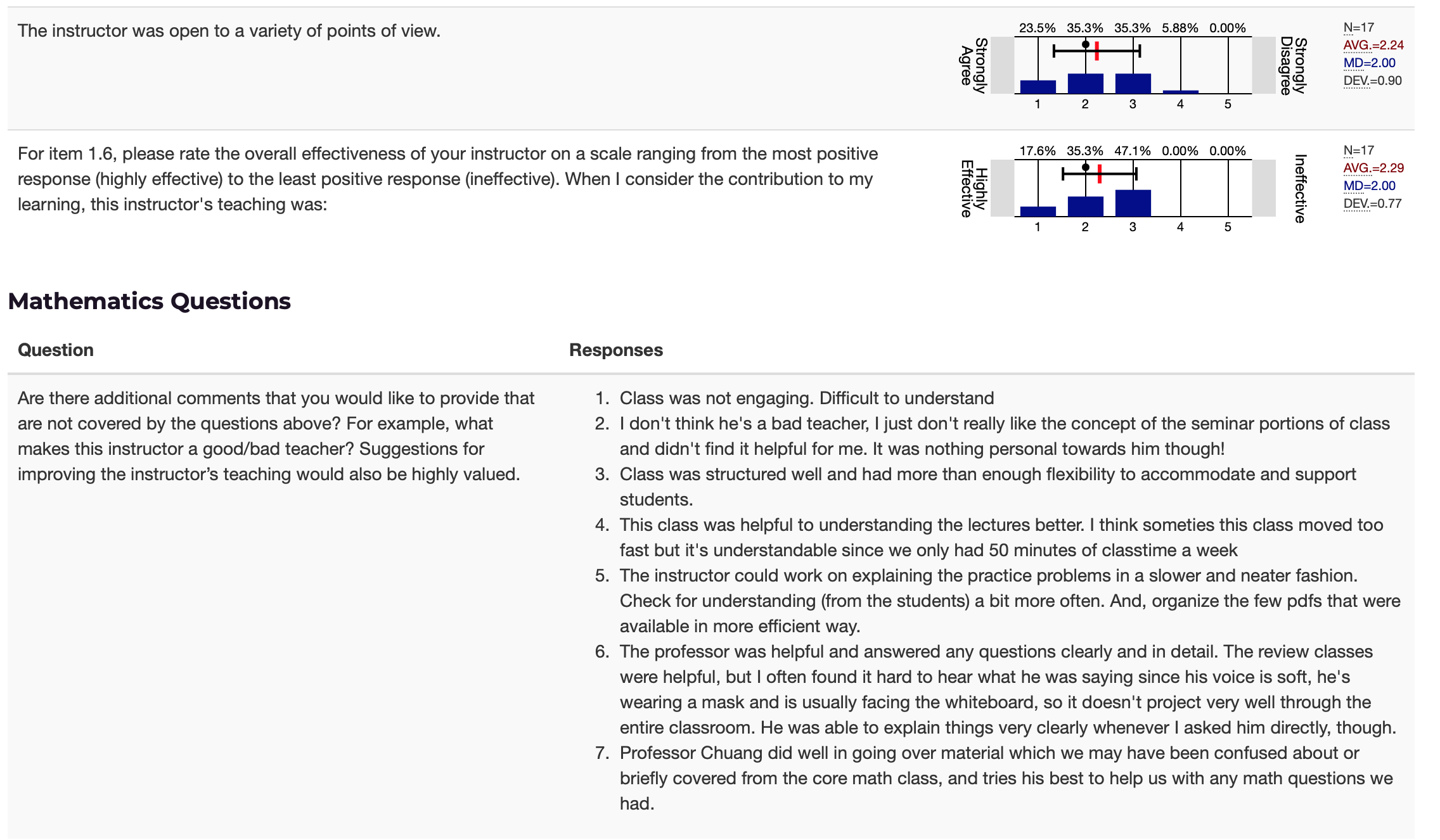
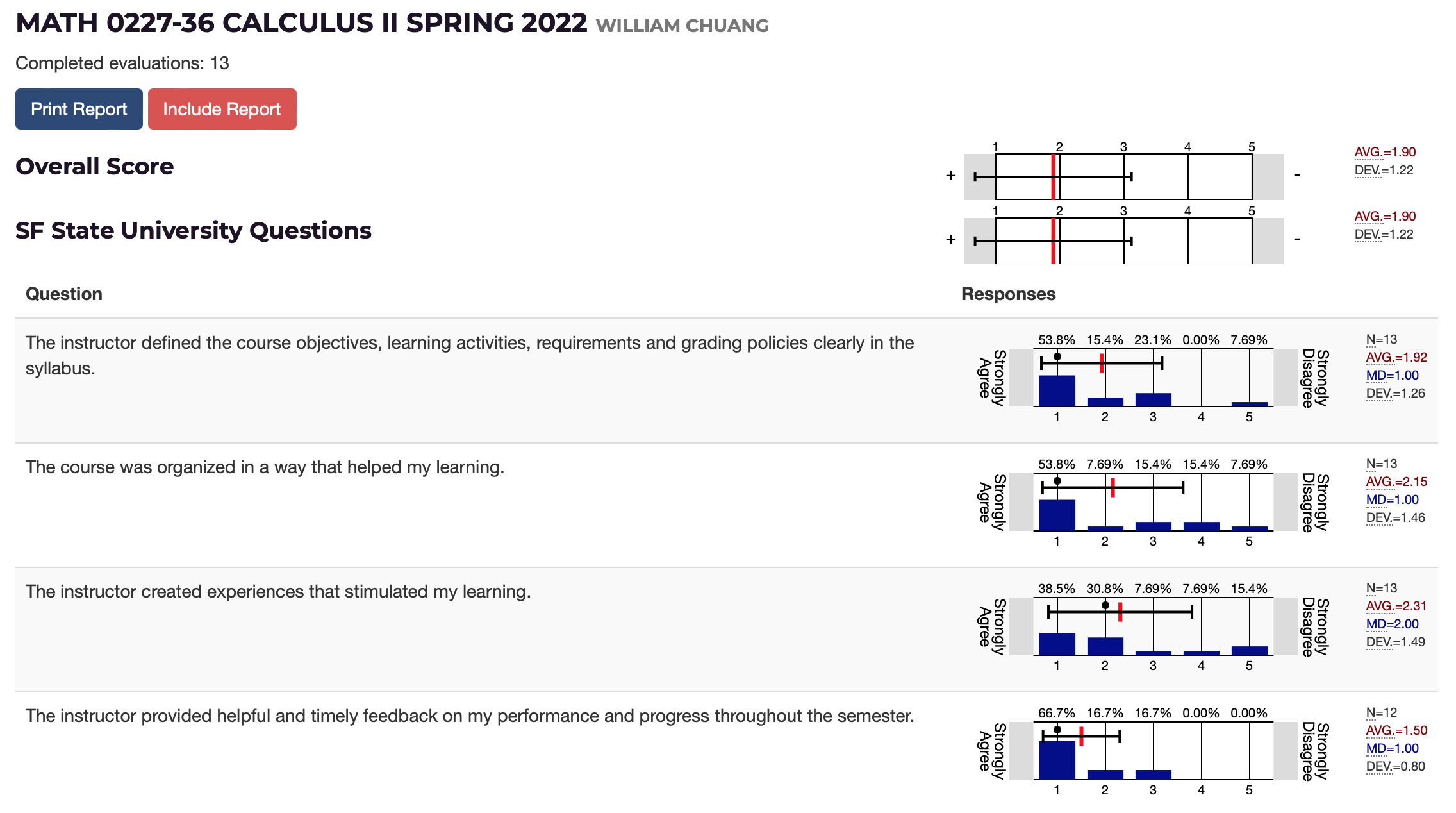
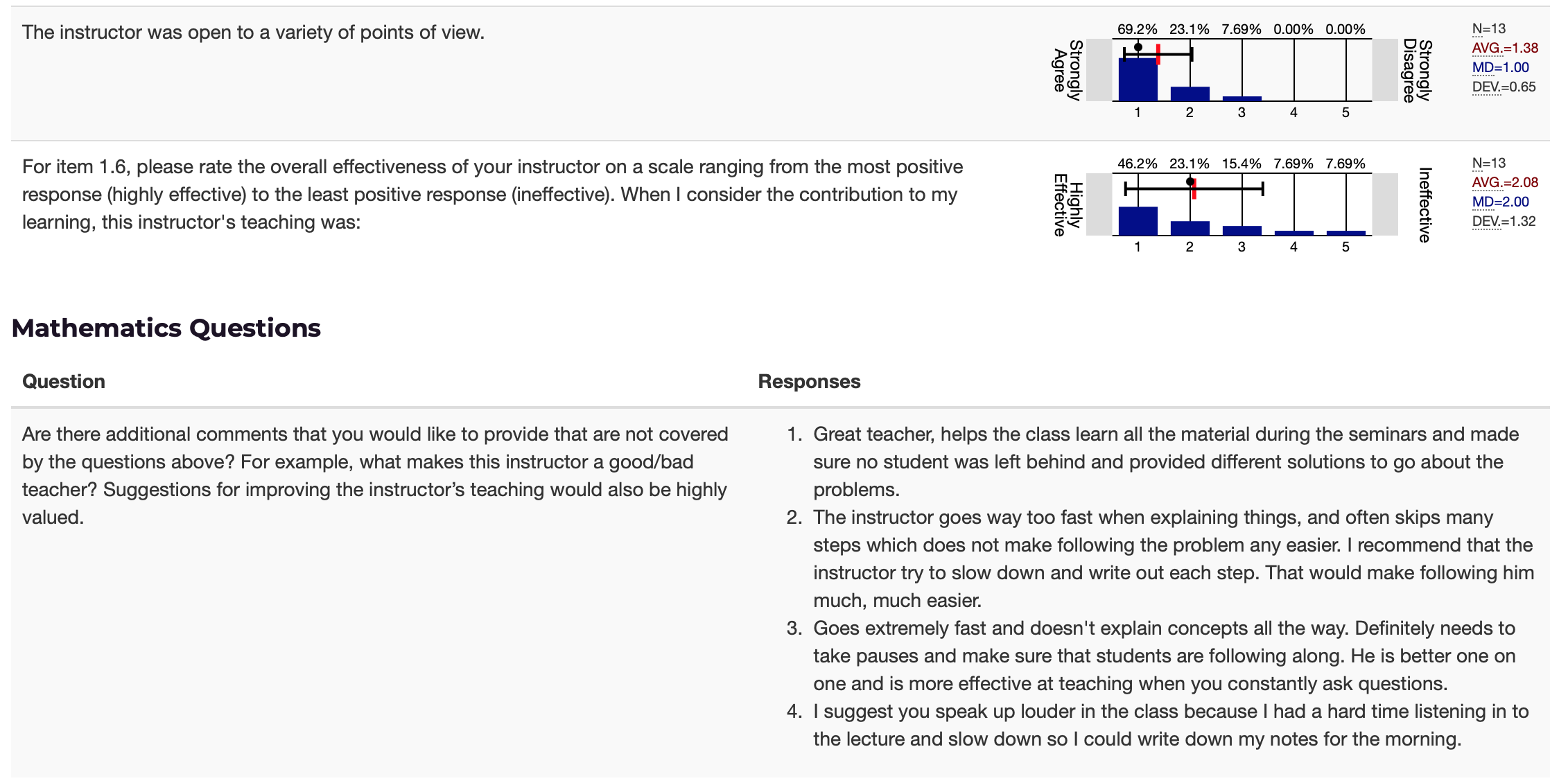
The following is the statistics of my teaching effectiveness responses I got while I was the instructor for the course MATH 0197-05 Prelude To Calculus, in Fall 2019, at the San Francisco State University. The materials were designed by the math department, and the teaching style is a combination of brief lectures and group works. Students were mostly underrepresented students in math, and the instructors of this course were suggested to talk less, and let students work out problems in a group by themselves. 1 is the best (the most positive) score and 5 is the worst (the most negative) in this survey. These were the results I improved from my first time teaching in 2019.
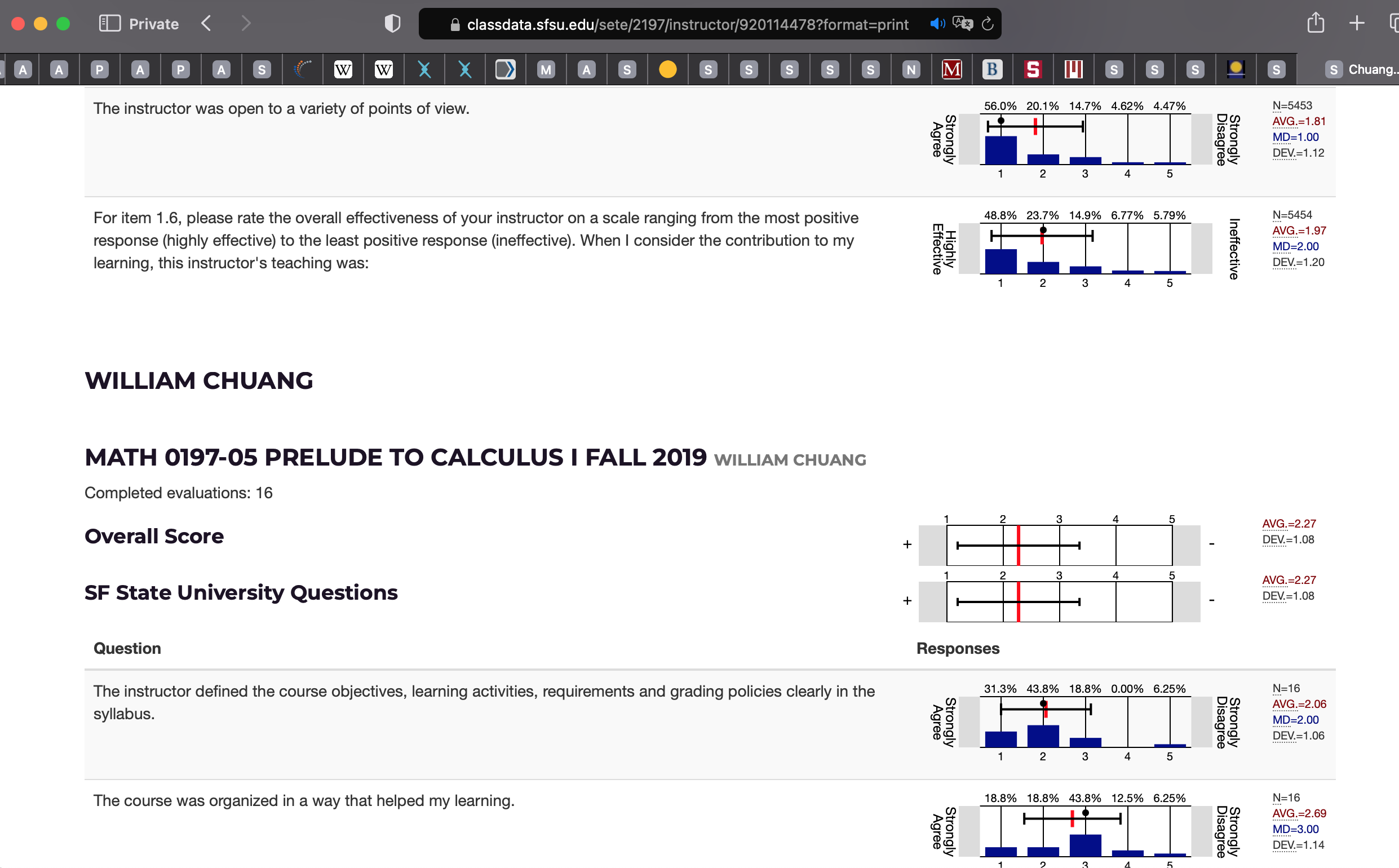
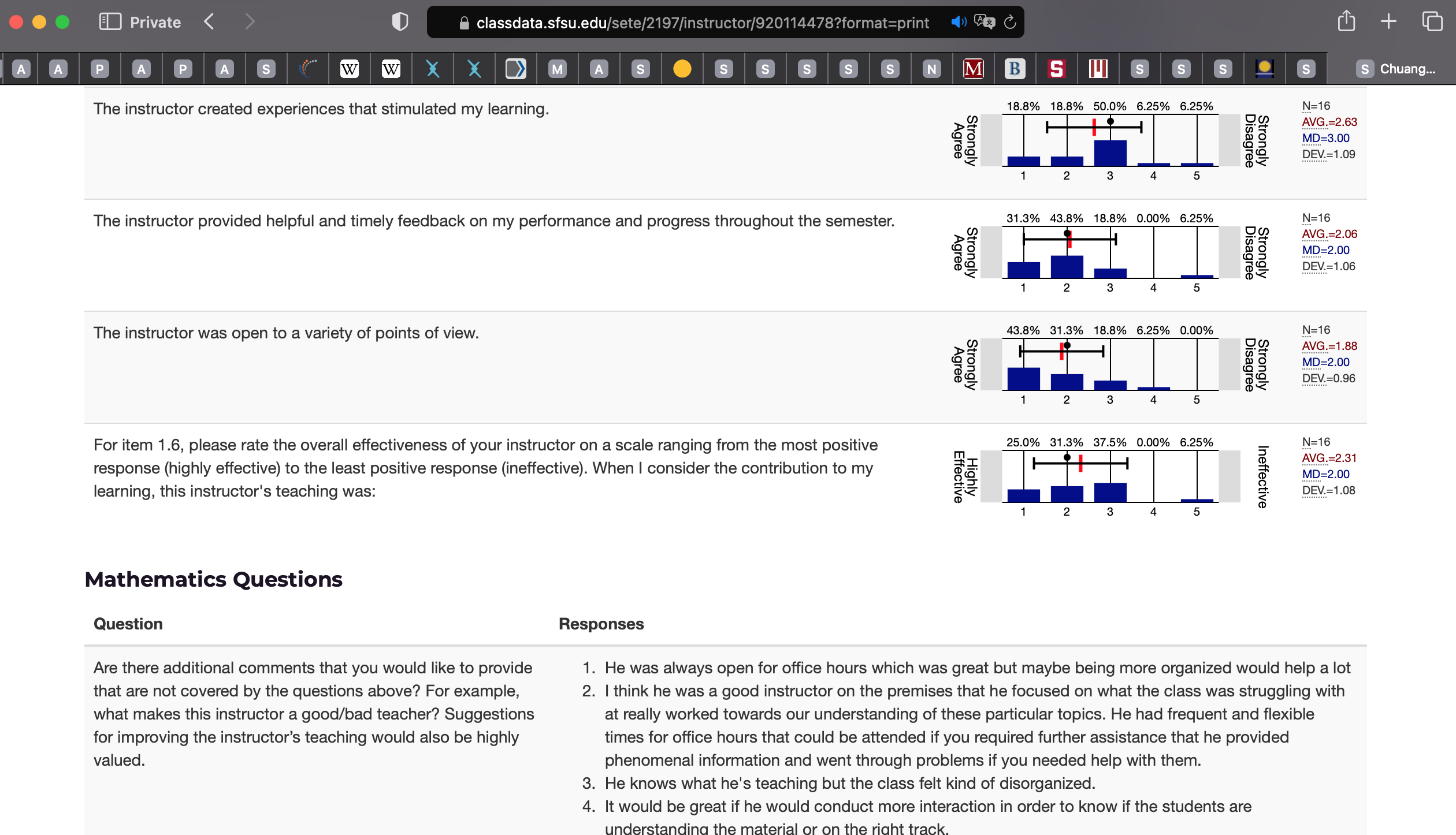
Initial knowledge check for the course MATH 112 College Algebra at University of Arizona:
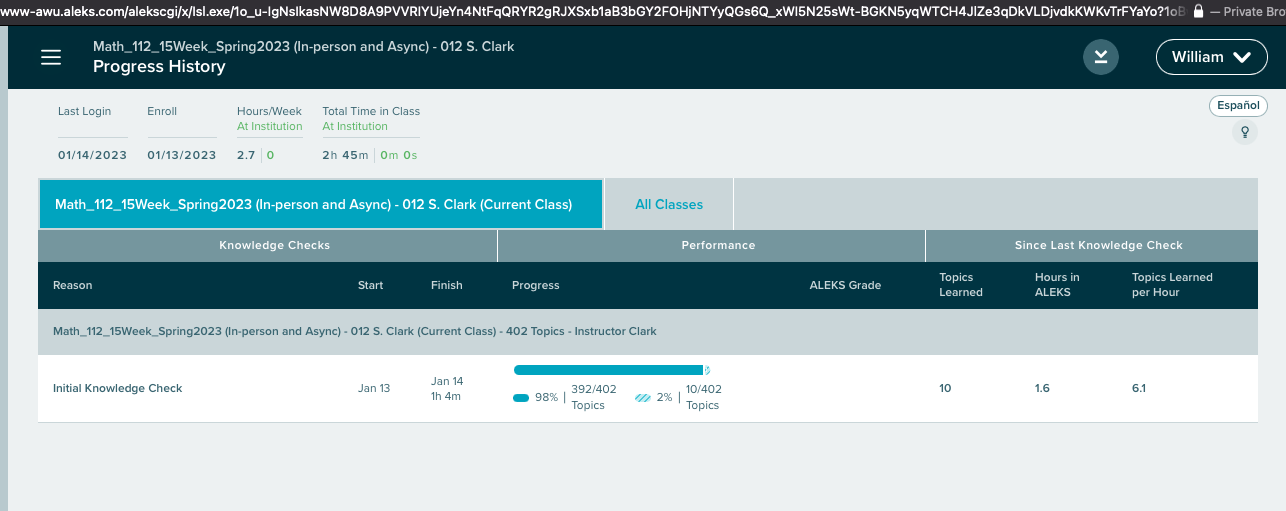
The first Aleks Initial Knowledge Check I did on Jan 14, 2023. It took 1 hour 4 minutes while I was also learning and using Mathematica language on its cloud computing engine as a calculator. The system ended the check before I could answer all questiOn January 14, 2023, I completed the first Aleks Introductory Knowledge Check. That took 1 hour and 4 minutes while I was also studying the Mathematica language and utilizing a calculator built into its cloud computing engine. Before I had a chance to finish the check, the system jumped to the next page to show my score.
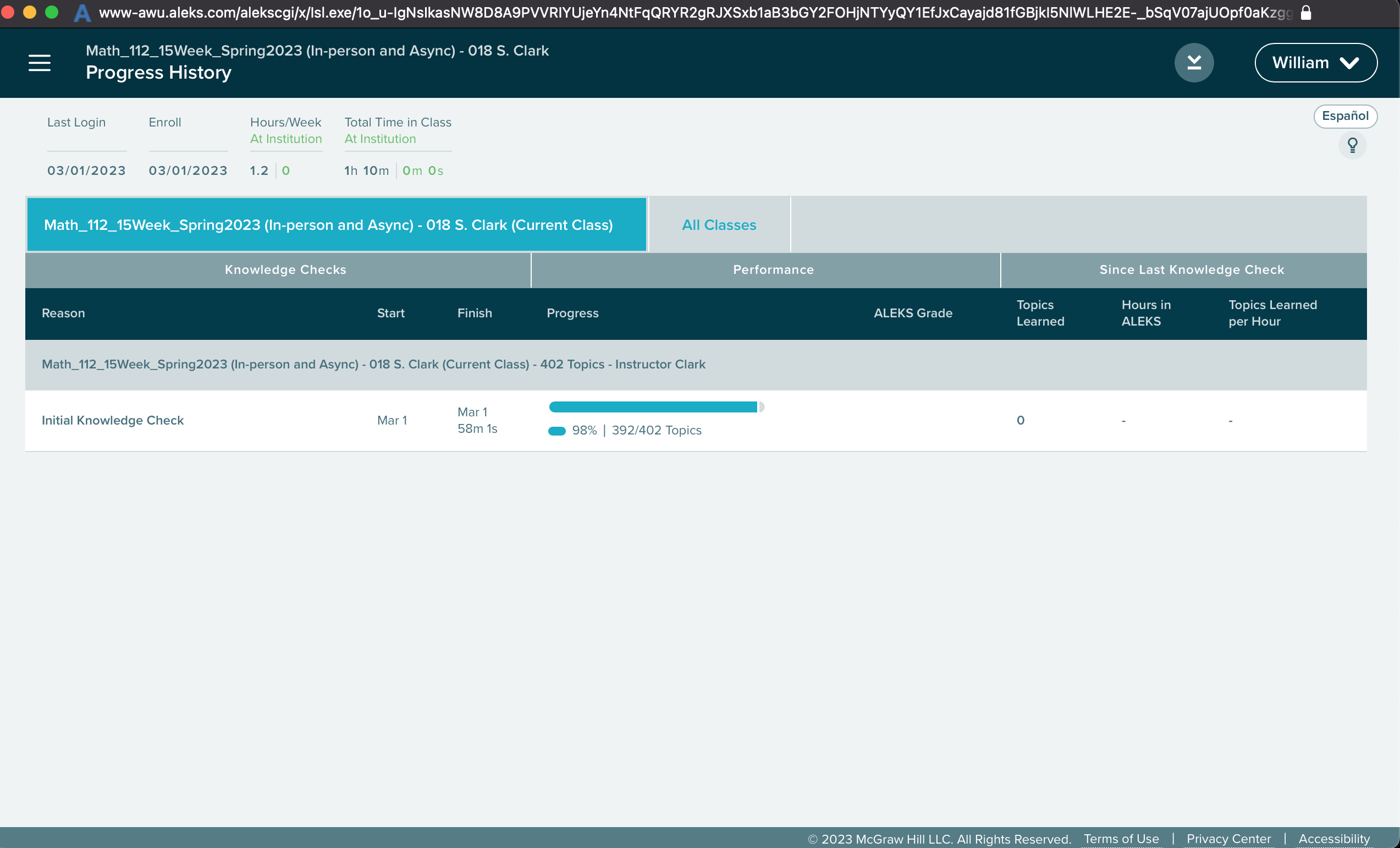
I completed the second Aleks Initial Knowledge Check on March 1st, 2023. This time, it just took a little under an hour, and I used TI-84 to manually perform a few logarithm computations. Again, the system abruptly interrupted before I had a chance to finish my responses. It appears that the test will end if a test taker obtains a score of 98 percent, unless there is a system flaw or it was intentionally designed that way.I had no idea if I missed any points on either test because neither provided feedback to the test-taker. I just need to seek up the definitions of a few terms for this initial knowledge examination, such as annual interest rate compounded quarterly and round your answer to the closest hundredth.
A 5-minute teaching sample:
Some other notes:
(6k+a)(6k+b)(6k+c)
Repunit numbers